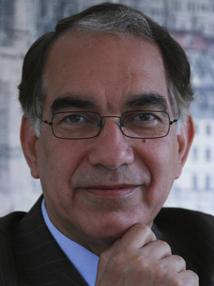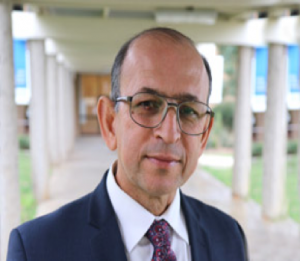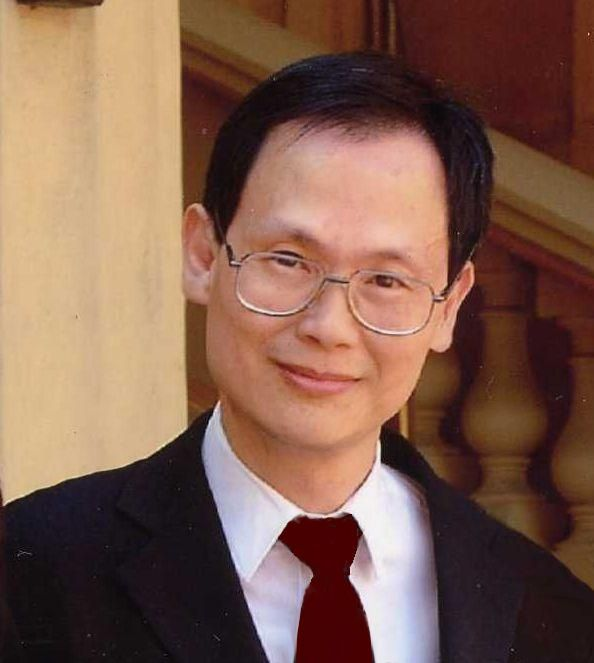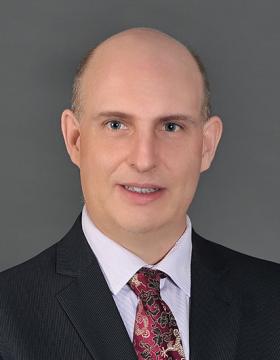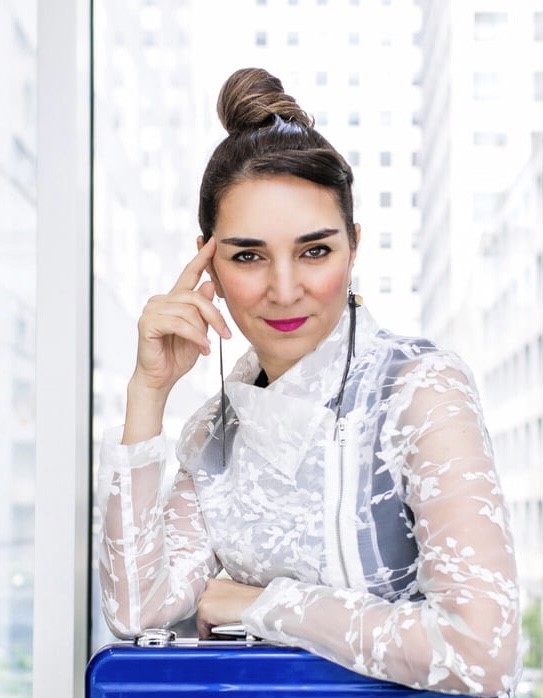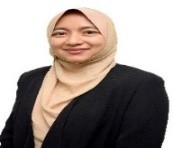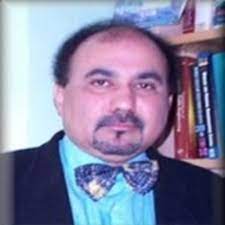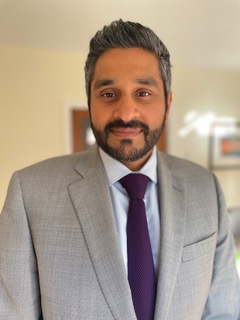Our Hospitals in the post-Covid era: Technological and design in uncertain future
Professor Salman Rawaf
MD PhD DCH MPH FRCP FFPH, FFPHMI
Professor of Public Health,
Director of the WHO Collaborating Centre for Public Health Education and Training, WHO
Imperial College London, UK
Professor Rawaf is the chair of Public Health Medicine, Director of WHO Collaborating Centre in the Department of Primary Care and Public Health at Imperial College London and Honorary Consultant Physician in the NHS. He acquired his qualification in medicine, with training in paediatrics and public health, and spent the breadth of his career in leading roles in the NHS; including 26 years as an Executive Director: County Medical Adviser, Medical Director, District Medical Officer and Director of Public Health. In the latter 23 years of his service in the NHS, he served as the Director of Public Health in South-West London with full responsibility for the population health and services in and outside the NHS, from which he then moved to Imperial College as Professor of Public Health Medicine, and the Director of the WHO Collaborating Centre for Public Health Education and Training, which supports several WHO Regions and their Member States.
Professor Rawaf is a globally recognised for his international work and contribution to global public health, health systems development and primary care in research and service delivery. His work is well documented in supporting countries to strengthen their health systems, service development and medical education.
He is an adviser to the World Health Organisation, Governments, Fellow of the Royal Colleges of Physicians London, the UK Faculty of Public Health, and a Member of the Faculty of Public Health Medicine Ireland. He is also involved in many national and international advisory committees. He supported many governments in strengthening their health systems through reviews and educational programmes and commissioned on many projects in the UK and abroad.
Professor Rawaf led on development of many educational and research programmes. He published over 300 scientific papers with h-Index over 65, five books and many international reports and received many awards and recognitions including in 2015 a Life Achievement Award for innovative works in shaping health services, research and medical education.
On Covid-19, he is Member of WHO Technical Advisory Committee; Member of Scientific Advisory Group on Covid-19 Department of Health UAE; Imperial College Covid-19 Group: and Supreme Advisory Group on Covid-19 Iraq; published 7 papers so far on the subject and runs a weekly Webinar. He is currently the President of the Arab Public Health Association, and President of the International Association of Medical Colleges.
Abstract:
The COVID-19 Pandemic is not over yet and many countries have entered many waves. While there is acceptance that health systems and professionals were faced many difficulties in absorbing such a ‘shock’ globally, no full assessment as yet on full impacts of the Pandemic on health systems, hospitals, primary care and health professionals. The Covid-19 Pandemic shock and the lessons learnt are a wake-up call for all governments and international organizations to look again on organization, design and the use of available and projected technology for better response and person-centred services. Some of the lessons learnt showed clearly the lack of resilience in all our health service globally. Hospitals, large and small, public and private are not exception. Many countries are rebuilding their health systems with new philosophy and concept based on resilience in design, flexibility in using resources, adaptability in operation, and technology-led in strategy and planning.
Our future hospitals will be different. It will respond better to population health, integrate fully with all service with the health system, people and patients-centred, and environmentally friendly. Technological advances will reduce unit costs, save lives, and reduce errors.
This paper will describe the shape of our future hospitals in a resilient health systems able too cope with any future shocks. Such hospitals will need new generation of health professionals fit for purpose and able to deliver value-based services for all. In the post-Covid era government responsibilities, as the guardian of their population health is much bigger than before and the public will be in the driving set. Many experts predict radical changes in health systems globally.
====================
What the Energy and Aviation industry needs in five years
(Aviation 4.0 and Renewable Energy)
Professor Talal Yusaf
Executive Dean – Higher Education and Emerging Technologies, Queensland, Australia and Professor at CQ University, Australia
Former Pro Vice Chancellor – Federation University Australia
Professor Talal Yusaf currently hold the position of Executive Dean – Higher Education and Emerging Technologies, Aviation Australia, Queensland Government, Australia, and Adjunct Professor at Central Queensland University. Professor Yusaf commenced his role as Pro Vice Chancellor, International and Partnership at Federation University Australia in September 2018, and was the Executive Director (International and Research Partnership) at University of Southern Queensland (2008-2018). Professor Yusaf’s international university career has included teaching, research and management positions in Southeast Asia, the Middle East, the United Kingdom and in Queensland for the last 31 years. Member of
-
Board of Director of Aviation Australia, Queensland Government, Australia
-
Board of Director of Aviation Australia Riyadh College at Kingdom of Saudi Arabia, KSA.
-
International consulting board (ICB), to the president of University of Technology, Iraq
-
Pro Vic-Chancellor International Forum
-
Visiting Professor
-
University College London
-
University Putra Malaysia
-
-
Adjunct Professor – University of Southern Queensland
Professor Yusaf holds PhDs in renewable energy and biotechnology and has a strong research background in Renewable Energy and environmental pollution, alternative fuels for IC engines and mechanical method for water treatment. Professor Yusaf’s academic qualifications include BSc (Hons) UoT Baghdad 1987, PhD1 USQ Queensland Australia and PhD2 National Uni UKM Malaysia 1999. Professor Yusaf has supervised over 50 PhD and Postgraduate students and has written and contributed to over 165 journals and 10 books.
Professor Yusaf’s professional memberships and affiliations include Pro Vic Chancellor / Deputy Vice Chancellor Forum (Australia), Australian University International Director Forum AUIDF, Chair of QLD international Director Forum, Director- International Sponsor Engagement and Research Partnerships (ISERP), Bio-Energy Research Group Leader at the National Centre for Engineering in Agriculture Queensland. Professor Yusaf is Associate Editor-in-Chief for Energies Journal, Sustainability Journal, Applied Sciences Journal and Groundwater for Sustainable Development.
Professor Yusaf is married with four children, including twin son and daughter, and is a huge fan of volleyball and soccer.
Abstract:
Industry 4.0 refers to the fourth industrial revolution, where smart digital technologies streamline, enhance and automate systems and processes. While the previous industrial revolution adopted information technology and robots, the present era leverages integrated and interconnected intelligent digital technologies (computing and internet) that are capable of sharing information and making decisions. Industry 4.0 also has a clear focus on developing sustainable, environmentally friendly technologies, sustainable fuels, Hydrogen, and processes that aim to minimise pollution and achieve zero carbon emissions.
The key technologies of Industry 4.0 impacting aviation are: the Internet of Things (IoT), Cloud technologies, Cyber security (including blockchain), Advanced analytics, Digital reality & Simulation, Additive manufacturing, Automated robotics & Artificial intelligence, and Big Data. Each of these technologies support and enhance operations in the aviation and aerospace industry.
The aim of this talk is to address issues related to what the industry needs in five years from now, including sustainable energy. Additionally, researcher institutions can contribute in upskilling technician skills to be a qualified technologist that can deal with Industry 4.0.
Hydrogen is the ideal alternative for many fields compared with other alternatives. The use of alternative fuels and hydrogen is one of them has received little attention in research and policy, which may explain the widely claimed belief that nothing, but small emission and water is released as a by-product when hydrogen or other alternative energy are used. ANN approaches can be used to develop a conceptual model for hydrogen energy, with a special focus on the pathways of hydrogen use, to assess the potential unintended consequences, and possible interventions.
————-
Research into Robotic Disassembly for Smart Remanufacturing
Professor Duc Truong Pham OBE, FREng FLSW FSME FIET FIMechE PhD DEng- Chance Chair of Engineering, University of Birmingham, UK
Professor Duc Truong Pham holds the Chance Chair of Engineering at the University of Birmingham where he started his career as a lecturer in robotics and control engineering following undergraduate and postgraduate studies at the University of Canterbury in New Zealand. Prior to returning to Birmingham in 2011, he was Professor of Computer-Controlled Manufacture and Director of the Manufacturing Engineering Centre at Cardiff University. His research is in the areas of intelligent systems, robotics and autonomous systems and advanced manufacturing and remanufacturing technology. He has supervised more than 100 PhD students to completion and has produced over 600 publications including 17 authored and edited books.
Abstract:
Remanufacturing is the process of returning a used product to at least the same condition as the original product. Remanufacturing is a key element of a circular economy. It is sustainable manufacturing, helping to save raw materials and energy, reduce greenhouse gas emissions and eliminate the need for landfill space. This presentation will cover research conducted in the 5-year Autonomous Remanufacturing (AutoReman) research programme funded by the UK Engineering and Physical Sciences Research Council at the University of Birmingham. The AutoReman project focused on disassembly, the first process in remanufacturing and also the most difficult to automate. The work involved conducting research into disassembly science to gain the fundamental understanding necessary for designing intelligent robotic equipment for disassembly as part of a smart remanufacturing system. The presentation will discuss the development and adoption of tools and techniques including sensors, digital twins, machine learning and intelligent optimisation to enable robots to perform disassembly reliably.
————-
AI for Speech and Audio
Professor Ian McLoughlin
Professor & Cluster Director
ICT Cluster, Singapore Institute of Technology, Singapore
Get in touch at ian.mcloughlin@singaporetech.edu.sg
Professor McLoughlin has published over 250 papers, more than 10 patents and has 4 books with Cambridge University Press and McGraw-Hill, in areas of speech/audio AI, signal processing and embedded systems. He was a founding PI of a National Research Foundation (Singapore) funded Research Centre of Excellence in 2009 ($150m), and to date has received personal research funding of over $20m from sources such as Huawei, Google, National Medical Research Council, AI Singapore, Ministry of Education (of Singapore, China, and New Zealand) and Innovate UK. He is a Chinese Academy of Sciences President’s Fellow, was recipient of 100 talent funding from Anhui Province in 2014, was a UK Royal Society partner in science in 2016 and is a Fellow of the IET. He has been a full professor for more than a decade, and served as Head of School in the UK for 5 years and cluster director (for InfoComm-Technology) in Singapore Institute of Technology for the past 2 years. In 2021 he was listed among the “top 2% Scientists in the world” according to Stanford University (one of four identified in SIT).
Abstract: computer vision, image processing and graphical human-computer interaction are often considered to be topics at the forefront of research in AI, advanced robotics, computational intelligence, bio-informatics, IIoT, smart factories and many other fields – yet sight is only one of the human or physical senses. Professor McLoughlin will present an overview of current research in sound-based AI, including speech and general audio processing, before focusing on the particular task of machine hearing. The talk will present use-cases ranging from smart cities to machine condition monitoring, human-robot interaction, security and health technology. It will then show how AI for audio can be decomposed into similar machine learning approaches in terms of feature extraction and classifier technology, before considering the many implications this has for the future of our homes, workplaces and cities.
————-
The Role of Architecture in Iraq’s Economic Development
Raya Ani
FAIA, LEED AP – Founder | Design Director: RAW-NYC Architects
Named one of the most influential architects in the Middle East. RAYA ANI is a multidisciplinary architect and urban designer with more than 30 years of international experience, having worked in Baghdad, Boston, Dubai, Germany, and New York City. She was the 2017 President of the American Institute of Architects-Middle East Chapter.
Her interests in melding innovation, sustainability, and technology, and her drive to empower and lead by example has resulted in her becoming the Founder and Design Director of RAW-NYC Architects; an award-winning interdisciplinary architectural studio based in New York City and Dubai. Raya was bestowed upon her the title of Fellow American Institute of Architects for her excellence in design and outstanding contributions in the field of architecture.
Raya’s boundless energy to inspire and empower through her strategic visions is seen in the Iraqi Pavilion at Expo 2020. Raya created the opportunity for Iraq and Iraqis to be visible at a world expo by creating the opportunity for Iraq. She lobbied for Iraq’s participation at Expo 2020, and designed and supervised the construction of the Iraq Pavilion for three years.
RAYA ANI’s firm RAW-NYC Architects is a visionary architectural studio based in New York City and Dubai. RAW-NYC is a collaborative practice providing iconic architectural buildings, urban designs, and master plans worldwide.
The firm is committed to the use of Artificial Intelligence, Robotics, and advanced fabrication strategies and processes to deliver iconic projects of high quality in a short time schedule and within budget.
RAW-NYC practices sustainability from the scale of the master plan, the infrastructure level to the architecture of the buildings and their internal spaces. The firm selects the ideal team for every project to create iconic buildings that embrace the local context, honor the larger vision, while embracing the projects identity on a micro scale and the country’s identity on a macro scale.
Abstract:
For Iraq to achieve pioneering status, we have to look into our resources, be it our natural resources as well as our human resources, while being empowered by a history that dates back to thousands of years.
Iraq’s competitiveness in the Global Market will rely on the capacity of the different industries to innovate, and make significant progress.
Iraq and every city in Iraq could gain a competitive edge against the world’s best competitors. Without a doubt, the pressure and the challenge is a critical part of the recipe for Iraq’s success. As Iraqis, we have to be demanding, and having strong rivals is beneficial as competing pushes us all as a country, as a nation and as humanity to advance and create a better world.
Join Keynote Speaker RAYA ANI as she navigates the realm of visionary architecture and infrastructure projects. Projects that Integrate Artificial Intelligence, Robotics and sensors in the design process, the fabrication and construction of Architectural Projects to achieve innovative and sustainable projects
She will highlight the role of innovation, technology and sustainability in creating a pioneering economy in different cites of Iraq, generating an alternative economic reality; an open, decentralised economy that is more sustainable and prosperous.
Can you help lay the foundation for Iraq’s new economy, new architecture and industry?
This is an open invitation to visionary Country, and City Leaders, scientists, developers, experts in Iraq, and different industries to forge strategic collaborative alignment to achieve success in every industry.
We could actively and collaboratively seek the future now and create an Iraq full of possibilities and opportunities for its people.
Together we can create Magic.
————-
The Role of Artificial Intelligence in Stem Cell Therapy
Professor Mohammed Al-Jumaily
Consultant Neurosurgeon – Spinal Surgeon
Expert in Regenerative Medicine, Cellular and Biological therapy for the Spine and the Nervous System.
- American Academy and Board of Regenerative Medicine Certified. March 2019.
- Certificate of Completion of Training in Neurosurgery, The General Medical Council, December 2011.
- Fellow of The Royal College of Surgeons of Edinburgh in Neurosurgery, October 2010.
- Ph.D. Neurobiology (Medal Obtained), University of Montpellier, France. July 2007.
- M.Sc. in Neurobiology, University of Montpellier, France. June 2002.
- Fellow of The Royal College of Surgeons of Edinburgh in Surgery in General, October 2000.
- Certificate of Advanced Specialist Training in General Surgery, University Paris XIII, France. Oct. 2001.
- Certificate of Specialist Training in Neurosurgery, University Paris VI, France. Oct. 1999.
- M.B.Ch.B., JULY 1995. Distinction Achieved.
Abstract:
With scientists and researchers pursuing regenerative medicine, the idea of healing in medicine has taken on a new shape. To date, medical professionals have “reacted” to disease by treating its symptoms; however, contemporary medicine is shifting toward regeneration rather than reactive treatment, which is where stem cell therapy enters the picture—the idea of replacing damaged cells with brand-new cells that perform the same function more effectively. Currently, autoimmune, inflammatory, neurological, orthopedic, and traumatic problems are treated with stem cells, and numerous diseases are being researched.
It might also be the key to preventing disease and aging. Despite the advantages, using stem cells to treat patients could lead to a number of mistakes. Modern medicine is starting to use artificial intelligence (AI) to handle the complex faults that could happen in regenerative medicine as a result of technological and scientific advancements. Precision and accuracy are required for successful therapy when examining healthy, functional stem cells that have all the characteristics of a native cell.
We aim to examine the use of artificial intelligence (AI) in stem cell therapy and how it affects medical practice, paving the way for a regenerative future with minimal side effects.
————-
5G and Beyond, green communications, IoT and Machine learning
Professor Ir. Dr. Aduwati Sali,
Wireless and Photonics Networks Research Centre (WiPNET), Department of Computer and Communication Systems Engineering, Faculty of Engineering Universiti Putra Malaysia, UPM, Malaysia
Professor Ir. Dr. Aduwati Sali (Senior Member, IEEE) received the B.Eng. degree in electrical electronics engineering (communications) from the University of Edinburgh, U.K., in 1999, the M.Sc. degree in communications and network engineering from Universiti Putra Malaysia (UPM), Malaysia, in April 2002, and the Ph.D. degree in mobile and satellite communications from the University of Surrey, U.K., in July 2009. She worked as an Assistant Manager with Telekom Malaysia Bhd, from 1999 to 2000. She was a Deputy Director with the UPM Research Management Centre (RMC), where she was responsible for research planning and knowledge management, from 2016 to 2019. She has been a Professor with the Department of Computer and Communication Systems, Faculty of Engineering, UPM, since February 2019. She was a recipient of the 2018 Top Research Scientists Malaysia (TRSM) Award from the Academy of Sciences Malaysia (ASM). She is involved with IEEE as a Chair to ComSoc/VTS Malaysia, in 2017 and 2018, and Young Professionals (YP), in 2015; Young Scientists Network-Academy of Sciences Malaysia (YSN-ASM) as a Chair, in 2018; and Science Policy as a Co-Chair, in 2017. She is also a Chartered Engineer (C.Eng.) registered under the U.K. Engineering Council and a Professional Engineer (P.Eng.) under the Board of Engineers Malaysia (BM).
Abstract:
Wireless communication systems play a very crucial role in modern society for entertainment, business, commercial, health and safety applications. These systems keep evolving from one generation to next generation and currently we are seeing deployment of fifth generation (5G) wireless systems around the world. Academics and industries are already discussing beyond 5G wireless systems which will be sixth generation (6G) of the evolution. One of the main and key components of 6G systems will be the use of Artificial Intelligence (AI) and Machine Learning (ML) for such wireless networks. Every component and building block of a wireless system that we currently are familiar with from our knowledge of wireless technologies up to 5G, such as physical, network and application layers, will involve one or another AI/ML techniques.
————-
6G communications and AI
Associate Prof. Dr. Víctor P. Gil Jiménez
University Carlos III of Madrid, Spain
Víctor P. Gil Jiménez received the B.S. degree (Hons.) in telecommunication from the University of Alcalá in 1998 and the M.S. degree (Hons.) in telecommunication and the Ph.D. degree (Hons.) from the University Carlos III of Madrid in 2001 and 2005, respectively. He visited the University of Leeds, U.K., in 2003, Chalmers Technical University, Sweden, in 2004, and the Instituto de Telecommunicaçoes, Portugal, from 2008 to 2010. He is currently with the Department of Signal Theory and Communications, University Carlos III of Madrid, as an Associate Professor. He has led several private and national Spanish projects and has participated in several European and international projects. He holds one patent. He has published over 50 journal articles/conference papers and seven book chapters. His research interests include advanced multicarrier systems for wireless radio, satellite, and visible light communications. He held the IEEE Spanish Communications and Signal Processing Joint Chapter Chair from 2015 to 2022. He received the Master Thesis and the Ph.D. Thesis Award from the Professional Association of Telecommunication Engineers of Spain in 1998 and 2006, respectively. He is IEEE Senior Member
Abstract:
Wireless communication systems play a crucial role in modern society for business, commercial, health, safety or entertainment applications. These systems keep evolving from one generation to next one and currently we are seeing deployment of fifth generation (5G) wireless systems around the world. Academic and industries are already discussing beyond 5G wireless systems, the sixth generation (6G). Artificial Intelligent (AI) and Machine Learning (ML) are envisaged to be a key technology for improving and reaching the goals on 6G. In this ultra-connected society, IoT is emerging in the last decade as the solution for many of the current problems in the industry, safety, health, infrastructure and home. In parallel, energy efficient communications systems are being proposed and developed especially nowadays that energy sustainability is a must
————-
Invited Speaker
AI for Everything
Prof HAMED AL-RAWESHIDY, UK
HAMED AL-RAWESHIDY is a professor of Communications Engineering and has been awarded his PhD in 1991 from Strathclyde University in Glasgow/UK. He was with Space and Astronomy Research Centre/Iraq, PerkinElmer/USA, Carl Zeiss/Germany, British Telecom/UK, Oxford University, Manchester Met. University and Kent University. He is currently the Group Leader of the Wireless Networks and Communications Group (WNCG) and Director of PG studies (EEE) at Brunel University, London, UK. He is the Co-Director of the Intelligent Digital Economy and Society (IDEAS); the new research centre which is part of the Institute of Digital
Futures (IDF).
He is the editor of the first book in Radio over Fibre Technologies for Mobile Communications Networks. He acts as a consultant and involved in projects with several companies and operators such as Vodafone (UK), Ericsson (Sweden), Andrew (USA), NEC (Japan), Nokia (Finland),
Siemens (Germany), Franc Telecom (France), Thales (UK & France) and Tekmar (Italy), Three, Samsung and Viavi Solutions – actualising several projects and publications with them. He is a principal investigator for several EPSRC projects and European project such as MAGNET EU project (IP) 2004-2008. He has published more than 450 journals and conference papers and his current research area includes 6G with AI and IoT. Currently, he is an external examiner for Beijing University for Posts and Telecommunications (BUPT) – Queen Mary
University of London. Further, He was the external examiner for a number of the MSc Communications Courses at Kings College London from 2011-2016.
He had also contributed to several White Papers. Specifically, he was editor for a White Paper in Communication and Networking, which has been utilised by the EU commission for research. He has been invited to give presentations at the EU workshop and delivered two presentations at Networld2020, as well as being the Brunel representative for NetWorld2020 and WWRF (for the last 15 years).
————-
Invited Industrial Speakers
Mr. Tawhid Islam, Managing Director & Co Chartered Accountants, UK
Heptron International flywheel storage technology – the solutions to accelerate the path to net zero on a global basis.
As a Manger Director, Mr. Islam has led the company from the idea stage to the point where the company is ready to begin to disrupt and change the clean energy sector forever by bringing cost-effective clean energy solutions to any project or country ranging from personal homes, the tallest office towers, industrial use, large commercial and even clean energy power station. The possibilities are truly endless. I have also ensured our intellectual property has been protected across the globe by successfully having patents granted across the world.
Abstract:
With the adoption of the Paris climate accords to limit global warming to 1.5 degrees now appearing impossible to achieve the time to act to prevent a climate disaster is now firmly in
our hands. The mass adoption and roll out of clean flywheel energy storage coupled with other ground-breaking solutions has the technological capabilities to not only meet the climate target laid down in Paris but make the move to net zero a distinct reality by tackling the highest emitting sectors through clean energy innovation which is ready to be
implemented now to meet the ever-growing demand for clean energy across the globe.
Flywheel energy storage implementation shares many parallels to the planting of trees by using the abundance of natural resources of the to turn cleanly generated kinetic energy back into clean electrical energy to power our domestic lives, the growing industrial and commercial sectors in a safe, cost effective and sustainable method with minimal environmental impact from mass production of such technology. This solution is uniquely placed to offer virtually any level of clean energy storage capacity in a safe manner and can be retrofitted into any existing site which presents endless opportunities for the implementation of such a solution. The global renewable energy market is already worth in
the region of $952.16 billion in 2021 and set to reach $1977.6 by 2030 and such innovative solutions could prove a game changer in an already fast-growing market.
Furthermore, this solution could play an important role in re-establishing and protecting entire eco systems in our shared responsibility to ensure that net zero targets are achieved and exceeded but also ensure diversification away from the current monopolies of energy to ensure more sustainable futures and economies for generations to come, a future which is genuinely not reliant on fossil fuels. The cost effectiveness of the solution could provide a much-needed lifeline for both the poorest and developing countries that struggle with consistent flows of electricity. The time to act is now to change the course of the climate crisis
which is now firmly within our grasp.


